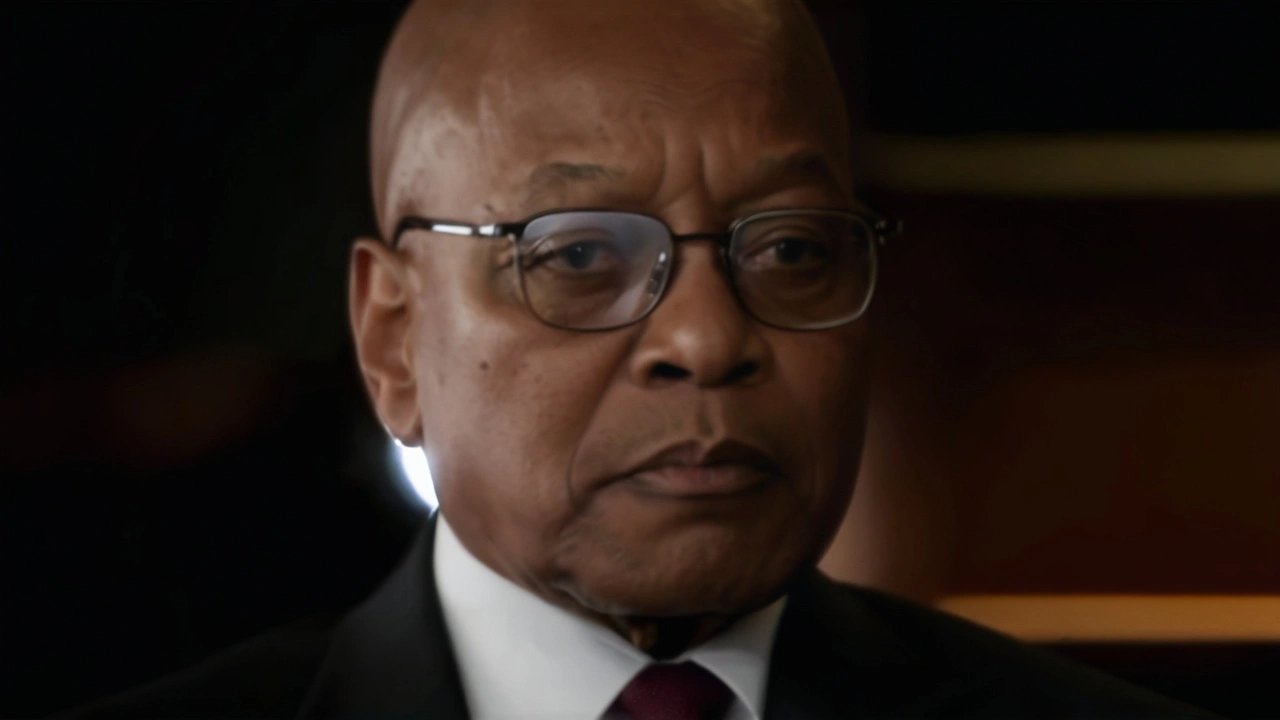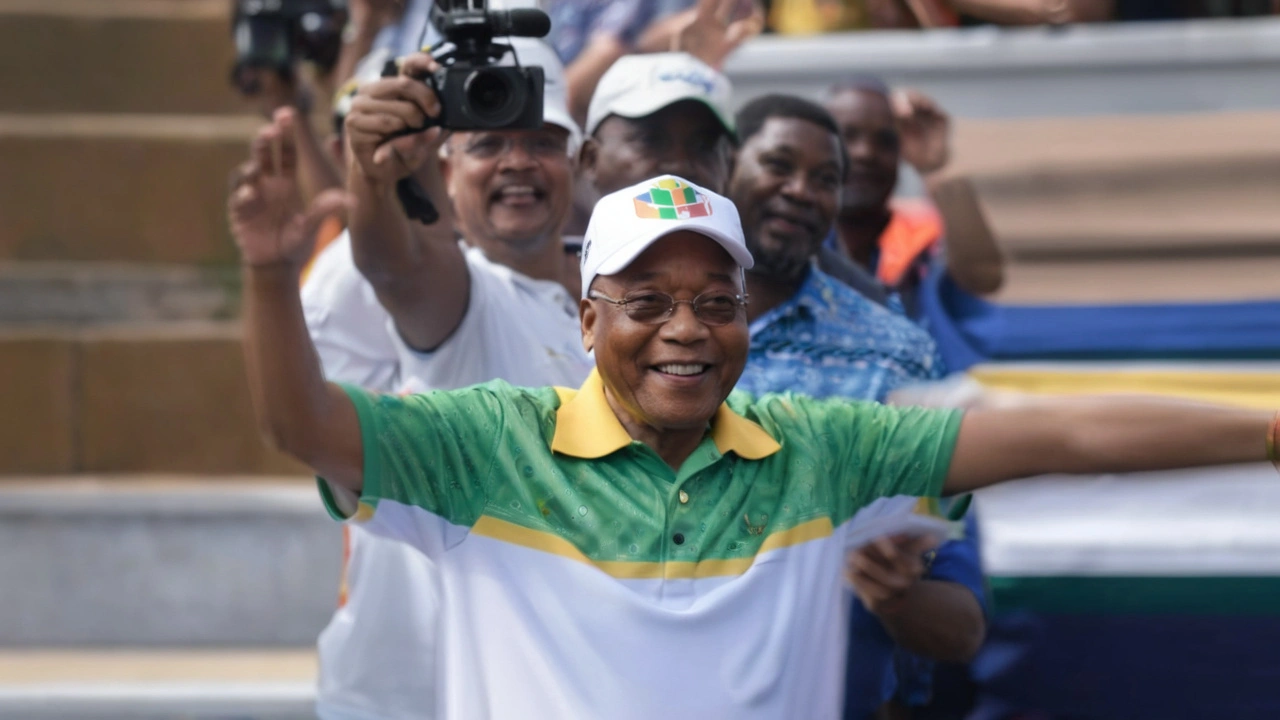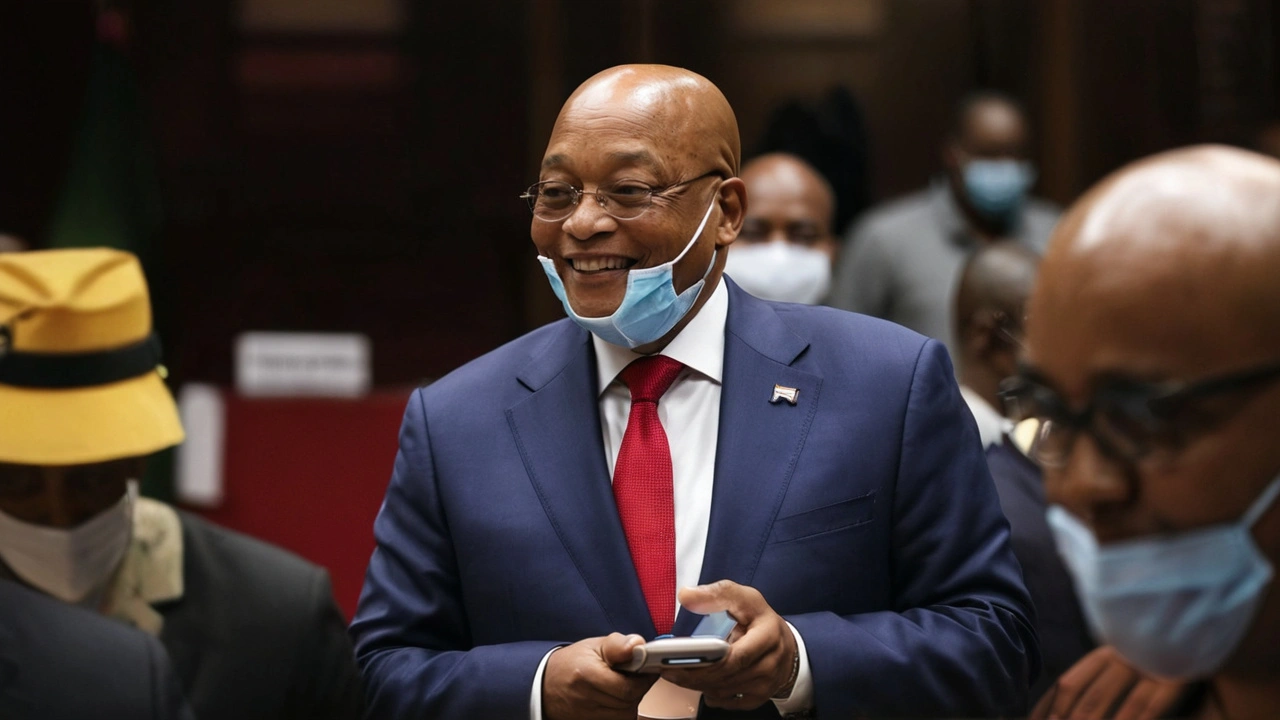Former President Jacob Zuma Expelled from ANC
In a dramatic political upheaval, South Africa’s African National Congress (ANC) has expelled Jacob Zuma, the country’s former president, who had been a stalwart member of the party for over six decades. Zuma’s departure marks the end of an era for the ANC, a party inextricably linked with the struggle against apartheid and the establishment of democracy in South Africa. The decision to expel Zuma, who served as the nation’s president from 2009 to 2018, came after he publicly endorsed and campaigned for a rival political party, uMkhonto weSizwe (MK), ahead of the May 2024 elections.
Zuma's Involvement with UMkhonto weSizwe
Zuma’s endorsement of MK, a relatively new party, raised eyebrows within and outside the ANC. MK, securing 15 percent of the vote in the latest elections, has swiftly risen to become the third-largest party in South Africa’s political landscape. The former president’s active campaigning for MK, using his considerable influence and charisma, was perceived as a direct threat to the ANC’s long-standing dominance. This act of political defiance did not go unchecked; the ANC cited it as a clear violation of party discipline and integrity, ultimately leading to Zuma's expulsion.
Zuma's Legacy and the Shadow of Corruption
Zuma’s political journey is both storied and marred by controversy. He joined the ANC in 1959, back when South Africa was still under apartheid rule. His participation in the anti-apartheid movement cemented his reputation as a freedom fighter. Seventeen years later, in 1975, he went into exile, where he continued to be actively involved in the struggle against apartheid until its eventual demise. However, Zuma’s presidency was tainted by numerous allegations of corruption and misconduct. A significant scandal was the 'state capture' case, in which Zuma was accused of allowing influential businessmen to usurp control of state-owned enterprises. Despite persistent denials of any wrongdoing, the weight of the allegations eventually forced him to resign in 2018.

Election Controversy and Claims of Irregularities
Even after his resignation and subsequent expulsion from the ANC, Zuma’s influence on South African politics remains palpable. His endorsement of MK was not merely symbolic; it translated into significant electoral gains for the party. However, Zuma’s involvement did not end there. Following the elections, he rejected the results, alleging widespread voting irregularities, despite not presenting any concrete evidence to back his claims. These statements have further fueled political tensions in a country already grappling with economic challenges and social discontent.
ANC's Current Stance and Internal Challenges
Announcing Zuma's expulsion, ANC Secretary-General Fikile Mbalula emphasized the need to preserve the party’s integrity and discipline. The ANC, which has been the dominant force in South African politics since the end of apartheid, is now facing internal divisions and a changing political landscape. The expulsion of a figure as significant as Zuma underscores the party’s resolve to maintain unity and stability amidst growing challenges. However, the decision also reveals the deep fissures within the party, echoing broader societal divisions that the ANC must navigate as it moves forward.
The Road Ahead for Jacob Zuma
Looking ahead, Jacob Zuma’s legal battles are far from over. He is set to appear in court in 2025 to face charges related to a controversial arms deal from 1999. The upcoming trial promises to be yet another high-stakes chapter in Zuma’s tumultuous political career. While he maintains his innocence, the allegations have cast a long shadow over his legacy. Moreover, his continued engagement in politics, especially through his support for MK, suggests that Zuma is not stepping away from public life anytime soon. His actions will undoubtedly continue to influence South Africa’s political narrative in unpredictable ways.

South Africa’s Political Future
The expulsion of Jacob Zuma from the ANC is a significant moment in South Africa’s political story. It raises questions about loyalty, integrity, and the future direction of the nation’s oldest liberation movement. As South Africa heads towards the 2024 elections, the political landscape is becoming increasingly complex. New parties like MK are emerging as credible challengers to the ANC’s supremacy. Voters, disillusioned with persistent corruption and economic stagnation, are looking for alternatives that promise effective governance and accountability. The ANC’s leadership will need to address these issues head-on to maintain its relevance and support base. Simultaneously, they must navigate the legacy of Jacob Zuma, a figure whose contributions and controversies have left an indelible mark on the party and the nation.



Robert Shealtiel
July 31, 2024 AT 08:23He still has more influence than half the current cabinet.
Marrissa Davis
August 1, 2024 AT 06:49Sean Brison
August 1, 2024 AT 11:38Norm Rockwell
August 1, 2024 AT 20:18Lawrence Abiamuwe
August 2, 2024 AT 09:31Dan Ripma
August 4, 2024 AT 02:34